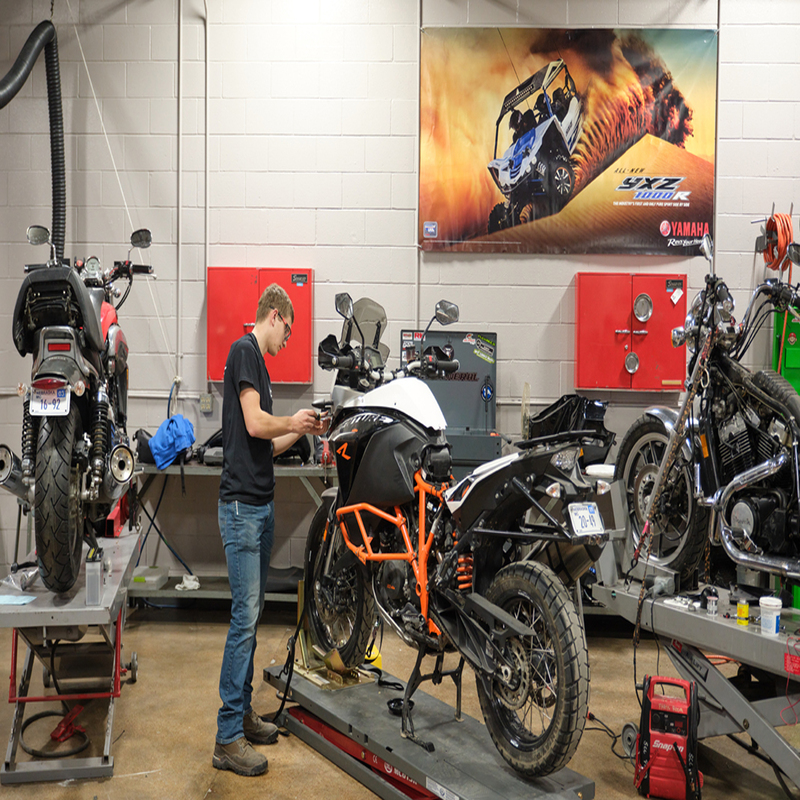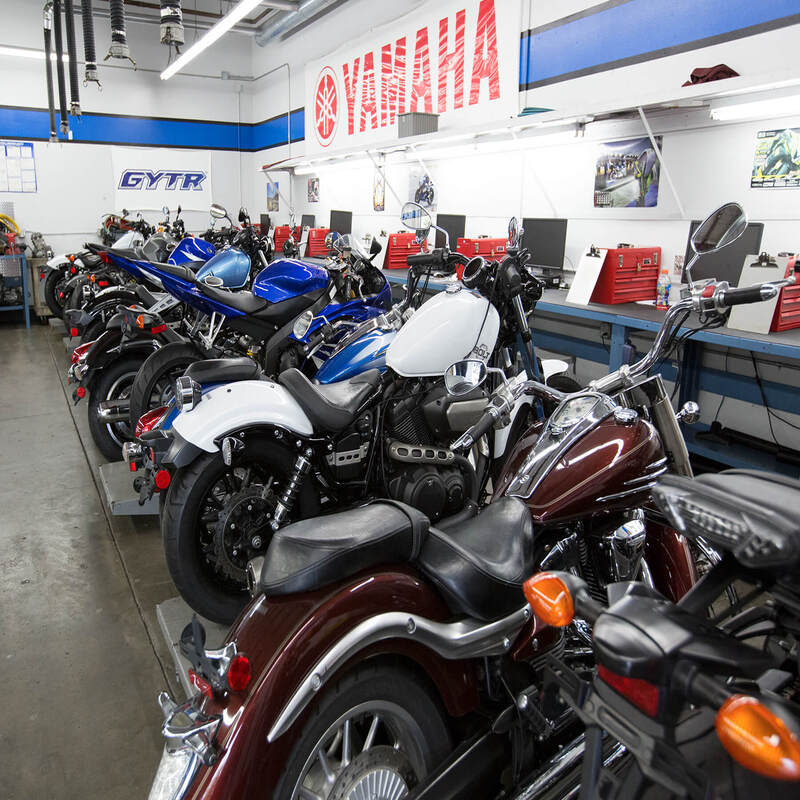Motorcycle mechanics play an essential role in the automotive industry. They ensure motorcycles run smoothly and safely. The salary of a motorcycle mechanic can vary significantly. Factors such as experience, location, and the type of employer contribute to these differences. Understanding these elements helps aspiring mechanics gauge potential earning power.
Factors Influencing Salaries
Experience Level
Experience plays a pivotal role in determining salary. Entry-level mechanics usually earn less than their more seasoned counterparts. According to industry data, new mechanics may start at around $30,000 annually. However, those with several years of experience see substantial increases. Skilled mechanics can earn upwards of $50,000 or more.
Moreover, specialized training also impacts salary. Mechanics certified in specific brands or systems often have higher earning potential. Some may earn certifications through apprenticeship programs. Others may enroll in community college courses. These paths enhance skills and boost job prospects significantly.
Geographic Location
Location significantly influences motorcycle mechanic salary. Urban areas tend to offer higher wages, thanks to increased demand. In contrast, rural locations usually feature lower pay scales. For instance, mechanics in cities like Los Angeles earn more than those in smaller towns. This wage gap often aligns with the cost of living in different regions.
Additionally, competition among employers can affect salaries. In metropolitan areas, numerous shops compete for skilled workers. Consequently, this competition leads to increased pay and better benefits. In rural areas, fewer shops may limit salary potential. Thus, it’s essential to consider both location and demand when evaluating salary expectations.

Types of Employers
Dealership vs. Independent Shops
Different types of employers offer varying salary ranges for mechanics. Generally, motorcycle dealerships pay more than independent repair shops. Dealership mechanics often have specialized training on specific brands. This specialization typically results in higher wages. Furthermore, dealerships may offer better benefits, like health insurance.
On the other hand, independent shops may provide unique opportunities. Some independent mechanics enjoy more flexibility regarding work hours. Moreover, successful independent shops can pay competitive wages based on their reputation. Mechanics might also earn bonuses for outstanding service or performance.
Experience in Specialized Areas
Mechanics specializing in certain types of bikes can enjoy higher salaries. For example, those proficient in high-end brands, like Ducati or BMW, usually earn more. Manufacturer training programs also tend to pay more for certified technicians. Specialized skills often create a demand that justifies higher pay.
Furthermore, mechanics who can perform complex modifications or custom builds also see salary benefits. This specialty work is often valued by enthusiasts and collectors. Their willingness to pay for quality results can lead to lucrative opportunities. Thus, developing specialized skills can greatly enhance earning potential.
Salary Range and Average Earnings
National Averages
The national average salary for motorcycle mechanic paints a clear picture. Based on current statistics, the average annual income hovers around $40,000. However, this number can fluctuate based on various factors, as mentioned earlier. Many mechanics earn between $30,000 and $60,000 annually.
Though some may start below the national average, growth opportunities exist. As mechanics gain experience and specialize, their earnings typically rise. Moreover, location also affects averages. For instance, mechanics in high-demand areas of California or New York often earn significantly more.
Benefits and Bonuses
In addition to base salary, many motorcycle mechanics receive benefits. Health insurance, retirement plans, and paid time off are common. These benefits enhance the overall compensation package. Some shops even offer bonuses based on performance or sales.
Additionally, mechanics often benefit from discounts on parts and services. These perks can lead to substantial savings in personal motorcycle maintenance. Thus, when evaluating potential earnings, consider the entire compensation package, not just salary.

Job Outlook and Demand
Growing Interest in Motorcycles
The demand for motorcycle mechanics is projected to grow in the coming years. The increasing interest in motorcycles as an affordable transportation option fuels this growth. Moreover, electric motorcycles are gaining popularity, creating new maintenance needs. This evolution ensures a steady supply of jobs for skilled mechanics.
Furthermore, as the baby boomer generation ages, many seek recreational vehicles. Motorcycles provide an exhilarating and accessible choice. This trend also contributes to the demand for qualified mechanics. Consequently, those entering the field now can expect numerous opportunities in the future.
Technological Advancements
Technology is continually transforming the motorcycle industry. Advances in electronics and engine design require specialized skills. Mechanics adept at diagnosing and repairing these modern systems often find better job security. Employers seek technicians knowledgeable in digital systems, enhancing prospects.
Training programs that focus on the latest technology also increase earning potential. Mechanics with certifications in these new areas stand out to employers. Therefore, continuous education plays a crucial role in career advancement. Staying updated with technology ensures relevance and opportunities for growth.
Education and Training
Formal Education Options
While formal education is not always required, it can greatly assist aspiring mechanics. Many community colleges and trade schools offer motorcycle repair programs. These programs typically combine hands-on training with classroom instruction. Graduates often find employment more easily than those without formal training.
Additionally, certifications from professional organizations enhance credibility. The National Institute for Automotive Service Excellence (ASE) offers specialized certifications for motorcycle mechanics. Such credentials can lead to higher salaries and better job prospects. Thus, pursuing education and training remains a wise investment.
Apprenticeships and On-the-Job Training
Apprenticeships are another excellent path to becoming a motorcycle mechanic. Students often work under experienced technicians. This hands-on experience is invaluable and can lead to full-time positions. Many shops offer apprenticeship programs designed to build skills gradually.
Moreover, on-the-job training provides additional advantages. Mechanics learn not only about repairs but also customer service and business operations. These skills can prove beneficial for those aiming to open their own shops in the future. Gaining this experience early on can set the foundation for a successful career.

Tips for Enhancing Earning Potential
Building a Strong Network
Networking within the motorcycle community can significantly impact salary potential. Building relationships with other mechanics, dealership owners, and industry professionals enhances opportunities. These connections can lead to job offers or referrals. Moreover, networking can provide insight into industry trends and salary expectations.
Engaging in local motorcycle events, shows, or meet-ups fosters valuable connections. Local clubs and associations often host functions where professionals gather. Participating in these activities helps build rapport and may lead to job offers. Thus, actively networking increases visibility and earning potential.
Continuing Education and Certifications
Commitment to ongoing education is crucial for motorcycle mechanics. Industry developments often require updated skills and knowledge. Enrolling in additional courses or workshops can foster growth. Many manufacturers offer training sessions for mechanics focused on specific brands.
Certifications help demonstrate expertise, making candidates more appealing to employers. Earning credentials from reputable organizations distinguishes mechanics in a competitive job market. Those who invest in continuing education can often expect higher salaries as a result. Staying current with industry advancements bolsters career trajectories significantly.
Conclusion
In conclusion, motorcycle mechanic salary is influenced by many factors. Experience, location, and the type of employer all play significant roles. Aspiring mechanics should consider these influences carefully. The demand for skilled mechanics is expected to rise, creating ample job opportunities. Education, training, and networking are essential for professional growth.
As the industry evolves, staying informed and adaptable is vital for success. Those who specialize in new technologies will benefit from enhanced salary potential. Overall, a career as a motorcycle mechanic can be rewarding, both personally and financially. Embracing lifelong learning and skill enhancement ensures future success and job satisfaction.



